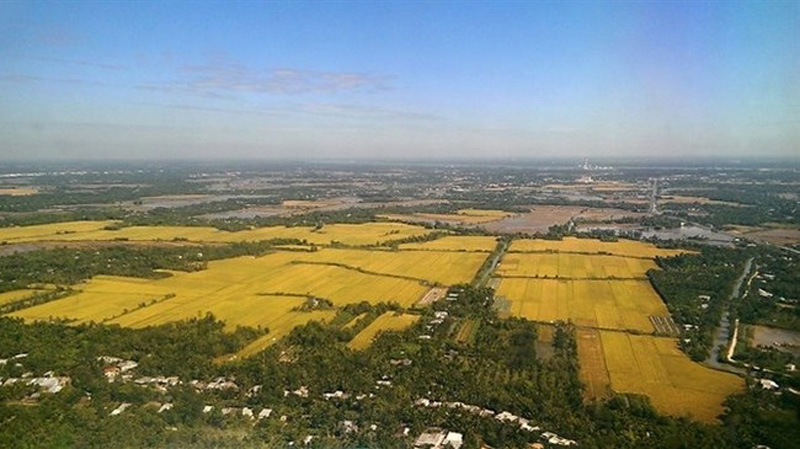


The Ministry of Natural Resources and Environment (MONRE) said at a recent conference that the database will be accessible to the public.
The digitisation of land records from paper records is part of Vietnam’s e-government programme, signifying the Vietnamese Government’s latest attempts to catch up with the digital age and the advent of the fourth industrial revolution.
The land database is not just an archive of information, it will also serve as a crucial tool for State management and satisfy the demands for access to land information, as well as the land policies of all organisations, businesses and the public in a transparent, objective, and convenient manner.

Rice fields in Thot Not district in the Mekong Delta province of Can Tho.
The land database will also serve to ensure that efforts to reform administrative procedures by various ministries and State agencies – especially between the environment ministry, tax, and customs bureaus – will be conducted in a coordinated manner.